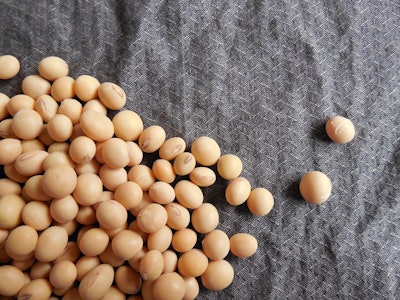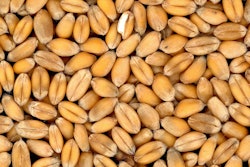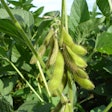
Benson Hill, Inc. has made significant advancements in its soybean breeding program. The company's ongoing efforts to recommoditize soybeans for animal feed and food have shown promising results in the 2023 harvest of pre-commercial proprietary soybeans. With the launch of these soybeans set for 2024, Benson Hill has achieved a remarkable 45% reduction in yield drag while maintaining industry-leading protein levels. This breakthrough positions the company to increase yields of Ultra High Protein Low Oligosaccharides (UHP-LO), non-GMO soybean varieties to be on par with commodity GMO soy varieties and further enhance protein levels in varieties slated for commercial release in 2025.
Benson Hill's Seed Portfolio Expansion
Driven by the success of its soybean breeding program, Benson Hill aims to double its seed portfolio by 2025. The company's third generation of UHP-LO soybean varieties has demonstrated protein gains of 2% over the previous generation while narrowing the yield gap with commodity GMO soybeans to only 3 to 5 bushels per acre. This achievement is attributed to the utilization of CropOS®, an AI-based prediction and data insights platform, which has propelled Benson Hill's predictive breeding efforts and surpassed expectations in terms of protein and yield improvements. These advancements enable Benson Hill to offer a wider range of seed innovations, including varieties with higher protein levels, lower anti-nutritional factors, and improved field performance.
Continuing its commitment to innovation, Benson Hill has expanded its commercially available soybean portfolio for the 2024 planting season. The company now offers five value-added soybean varieties in addition to the existing dozen varieties. These new varieties exhibit higher protein levels, lower anti-nutritional factors, and solid field performance. With more than 20 varieties available across different relative maturity groups, U.S. soybean farmers have a diverse range of options to meet their specific needs.
Herbicide Tolerance and Future Growth Plans
Benson Hill's research and development efforts are on track to introduce herbicide tolerance in its soybean varieties used for food ingredients by 2025. This development will provide farmers with effective weed control options and enable cost-efficient production of Ultra High Protein soybeans for the feed industry. By leveraging its deep insights into soybean germplasm, the company aims to drive seed innovation and expand its presence in the aquaculture, pet food, swine, and poultry markets, which collectively represent 90% of the soy market.
The recent field evaluations of Benson Hill's non-GMO, UHP-LO soybean varieties have revealed novel attributes that make them highly desirable for poultry diets, swine rations, and pet food. These attributes include higher yields, increased protein levels, and lower anti-nutritional factors. With a total addressable market of approximately 28 million acres, Benson Hill is poised to capitalize on the broadacre animal feed opportunity within the next few years. The company's expanding soy protein expression data set, which encompasses field data from R&D programs, field trials, and commercially planted acres, allows for further refinement of the predictive capabilities of CropOS. Benson Hill plans to share the results of its studies and feeding trials as they become available.
To validate its products and create market demand, Benson Hill is actively engaging with customers, end-users, and partners. The company's asset-light business model focuses on partnerships and licensing, including seed. Over the years, Benson Hill has made significant advancements in boosting soy protein levels and continues to develop seed improvements relevant to poultry production in specific geographies. The company is well-positioned to scale its seed innovations across approximately 7 million acres by 2030.
Benson Hill's analysis of UHP-LO soybean varieties has opened up new possibilities in various markets, such as aquaculture, pet food, swine, and poultry. The company's commitment to delivering nutritious and sustainable food options is supported by its cutting-edge CropOS platform, which combines data science, machine learning, biology, and genetics. With a focus on unlocking nature's genetic diversity, Benson Hill aims to empower innovators and make nutritious, great-tasting food widely accessible.
















